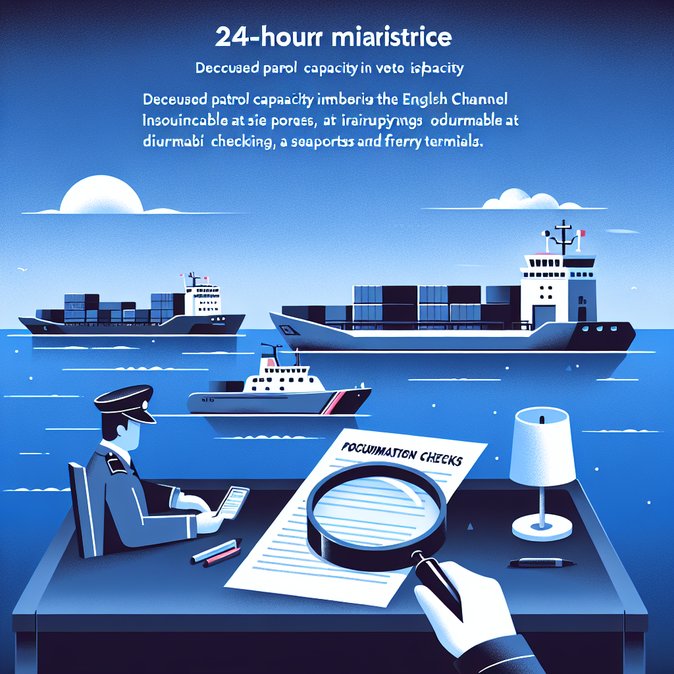
Home Secretary Shabana Mahmood will set out on Monday the most sweeping overhaul of the UK’s asylum and removal system in a generation. Briefings to The Guardian on 14 November reveal that the Labour minister wants to replicate key planks of Denmark’s hard-line model in order to deter irregular Channel crossings and accelerate deportations.
Under the draft package, the Home Office would:
• rewrite sections of the Human Rights Act so that public-safety considerations can trump migrants’ rights to private and family life;
• enable removal directions even where returnees claim risk of degrading treatment, provided diplomatic assurances are in place;
• tighten family-reunification rules by allowing only spouses and minor children to join recognised refugees;
• impose time-limited protection so that refugees must re-prove risk of persecution after three years; and
• expand electronic monitoring and community-service requirements for people whose claims are refused but who cannot immediately be removed.
Officials visited Copenhagen last month to study how Denmark reduced asylum claims by 73 % between 2015 and 2022 by restricting benefits, introducing temporary status and moving processing off-shore. Mahmood believes a similar “deterrence plus fast removal” formula can curb the 39,000 small-boat arrivals recorded so far this year – already 19 % higher than in 2024.
![UK Home Secretary plans Danish-style crackdown on illegal migration]()
Business groups are watching closely because earlier leaks suggested the reforms could also lengthen the qualifying period for Indefinite Leave to Remain (ILR) from five to ten years. Employers that rely on sponsored workers fear the change would add cost and uncertainty, potentially undermining the UK’s attractiveness for global talent.
Human-rights organisations—including Amnesty and the Refugee Council—say the proposals breach the Refugee Convention and risk more litigation, while Labour back-benchers warn against adopting what they call “Danish austerity on steroids”. Yet internal Home Office data seen by The Guardian indicate that deportations have already risen 23 % since the election, and ministers say tougher laws are needed to maintain momentum.
If the government presses ahead, companies relocating staff should prepare for shorter appeal windows, stricter documentation checks and a higher likelihood that refused applicants will be removed quickly. Mobility teams may need to review humanitarian-parole and family-reunion support policies for assignees and dependants, and update risk assessments for short-term visitors who overstay. The full Bill is expected to be published before Parliament rises for the Christmas recess, with implementation timetabled for summer 2026.
Under the draft package, the Home Office would:
• rewrite sections of the Human Rights Act so that public-safety considerations can trump migrants’ rights to private and family life;
• enable removal directions even where returnees claim risk of degrading treatment, provided diplomatic assurances are in place;
• tighten family-reunification rules by allowing only spouses and minor children to join recognised refugees;
• impose time-limited protection so that refugees must re-prove risk of persecution after three years; and
• expand electronic monitoring and community-service requirements for people whose claims are refused but who cannot immediately be removed.
Officials visited Copenhagen last month to study how Denmark reduced asylum claims by 73 % between 2015 and 2022 by restricting benefits, introducing temporary status and moving processing off-shore. Mahmood believes a similar “deterrence plus fast removal” formula can curb the 39,000 small-boat arrivals recorded so far this year – already 19 % higher than in 2024.

Business groups are watching closely because earlier leaks suggested the reforms could also lengthen the qualifying period for Indefinite Leave to Remain (ILR) from five to ten years. Employers that rely on sponsored workers fear the change would add cost and uncertainty, potentially undermining the UK’s attractiveness for global talent.
Human-rights organisations—including Amnesty and the Refugee Council—say the proposals breach the Refugee Convention and risk more litigation, while Labour back-benchers warn against adopting what they call “Danish austerity on steroids”. Yet internal Home Office data seen by The Guardian indicate that deportations have already risen 23 % since the election, and ministers say tougher laws are needed to maintain momentum.
If the government presses ahead, companies relocating staff should prepare for shorter appeal windows, stricter documentation checks and a higher likelihood that refused applicants will be removed quickly. Mobility teams may need to review humanitarian-parole and family-reunion support policies for assignees and dependants, and update risk assessments for short-term visitors who overstay. The full Bill is expected to be published before Parliament rises for the Christmas recess, with implementation timetabled for summer 2026.


